Purina 30% Protein Starter Game Bird and Turkey Feed, 40 lb.
Game birds are a popular addition to backyard flocks, but they have special needs. Purina® Game Bird & Turkey Starter is a convenient way to provide the high protein and specific nutrients these young birds – different from baby chicks – require to start strong. A complete and balanced feed specifically formulated for pheasants, quail, chukars, guinea fowl and other exotic game birds from 0-6 weeks or turkeys 0-8 weeks of age.
Description
Game birds are a popular addition to backyard flocks, but they have special needs. Purina® Game Bird & Turkey Starter is a convenient way to provide the high protein and specific nutrients these young birds – different from baby chicks – require to start strong. A complete and balanced feed specifically formulated for pheasants, quail, chukars, guinea fowl and other exotic game birds from 0-6 weeks or turkeys 0-8 weeks of age.
- 30% protein diet: Meets high nutrient demands
- Unique and complete formula: Provides all the nutrients needed for optimal growth and development
- Appropriate crumble size: Easy for young birds to digest
- Vitamin C: Helps support well-being during periods of heat stress
Ingredients
*LABELING REQUIREMENTS VARY FROM STATE TO STATE. FOR AN ACCURATE LIST OF INGREDIENTS AND GUARANTEED ANALYSIS IN YOUR REGION, PLEASE REFER TO THE LABEL AFFIXED TO THE FEED PRODUCT.
Guaranteed Analysis
| Nutrient | Analysis |
|---|---|
| Crude Protein | 30.00% min |
| Lysine | 1.50% min |
| Methionine | 0.50% min |
| Crude Fat | 2.50% min |
| Crude Fiber | 6.50% max |
| Calcium (Ca) | 1.00% min |
| Calcium (Ca) | 1.50% max |
| Phosphorus (P) | 0.80% min |
| Salt (NaCl) | 0.25% min |
| Salt (NaCl) | 0.75% max |
| Sodium (Na) | 0.51% max |
Feeding Guide
Feed Purina Game Bird 30% Protein Starter Feed as at least 90 percent of the diet as follows:
- Turkeys: If raising for meat, feed Purina Game Bird 30% Protein Starter feed from 0 to 8 weeks. Then transition to Purina Flock Raiser feed. If raising for eggs, feed Purina Game Bird 30% Protein Starter feed from 0 to 8 weeks. Then transition to Purina Flock Raiser feed from eight weeks to first egg (around week 28). Switch to a complete layer feed at the first egg.
- Peacocks: Feed Purina Game Bird 30% Protein Starter feed from 0 to 6 weeks. After week 6, switch to Purina Flock Raiser feed. At the first egg, transition to a complete layer feed.
- Game Birds: If raising for meat, feed Purina Game Bird 30% Protein Starter feed for the first six weeks and then switch to Purina Flock Raiser feed until birds reach market weight. If raising for eggs, feed Purina Game Bird 30% Protein Starter feed from day one until the first egg and then feed Purina Game Bird Layer feed. If raising for flight, feed Purina Game Bird 30% Protein Starter feed from day one through week six and then switch to Purina Game Bird Flight Conditioner.
Specification
Additional information
| Animal Type | Turkeys |
|---|---|
| Food Form | Crumble |
| Packaged Height | 30 in. |
| Packaged Length | 5.5 in. |
| Packaged Weight | 40 lb. |
| Packaged Width | 15.5 in. |
| Poultry Life Stage | Chick |
| Manufacturer Part Number | 3005640-305 |
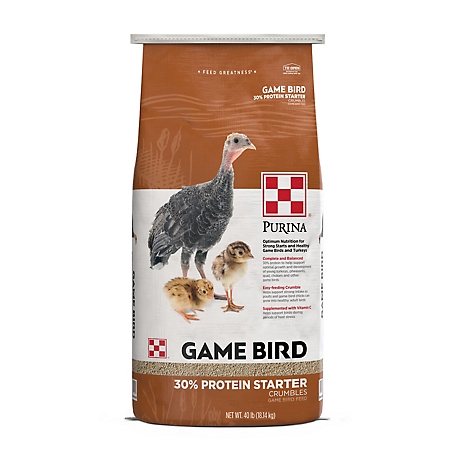
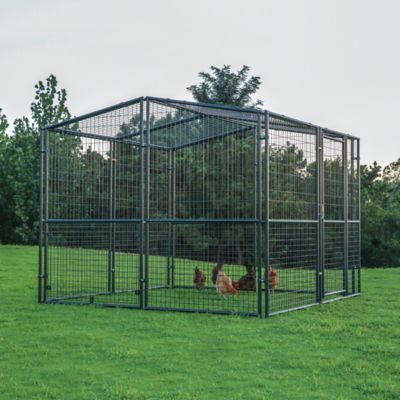
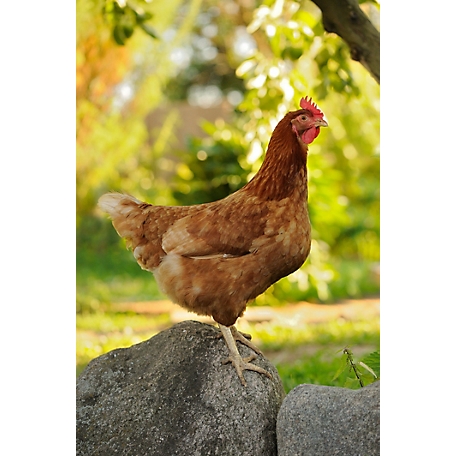
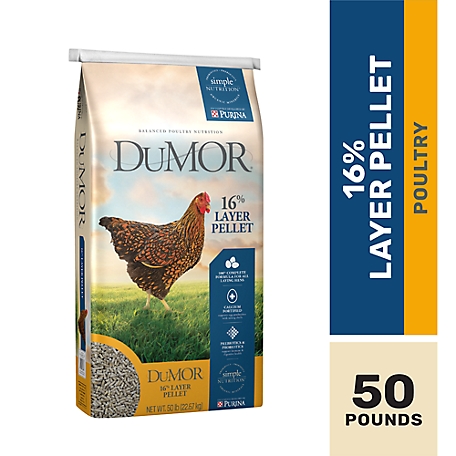
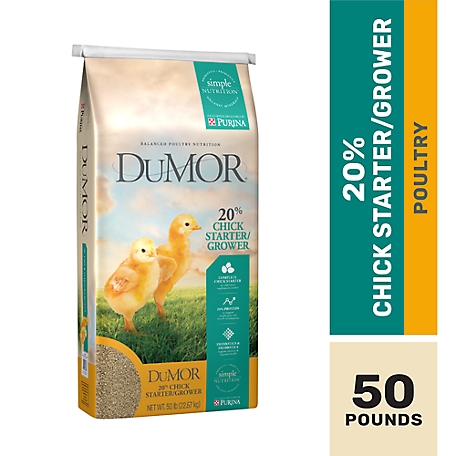
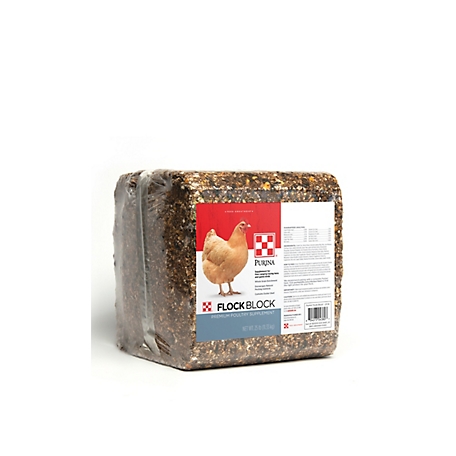

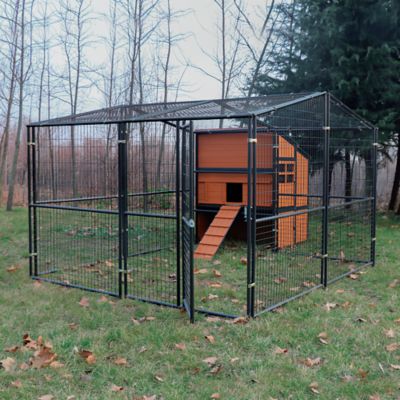
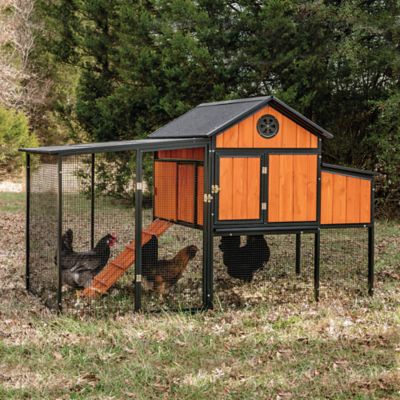
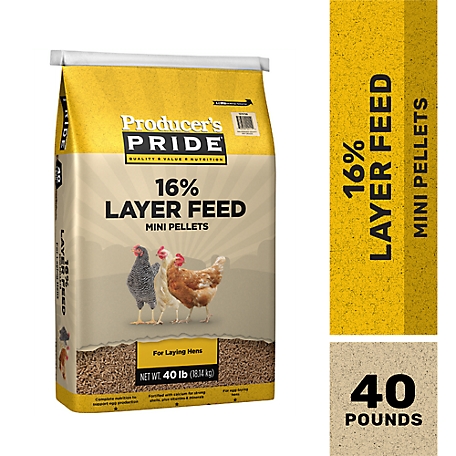
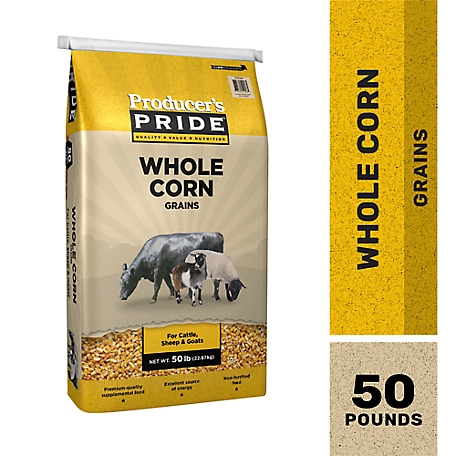
by Kevin
Works great for Guinea Fowl Keets
by Yavette
I’ve spent many hours researching and many more having my “baby”flock test feed; these seems to be the best.. quality and taste! High in protein for their growing needs.
by Smurt
I’ve used this product for over 6 months on the homestead for our quail. Love it! Some bags are more powdery than others, but I just save the powder for the hatchlings. Nothing goes to waste.
by Pudda
Great feed for turkey poults. Doesn’t have a lot of powder and is a good value for the $.